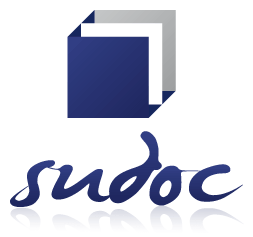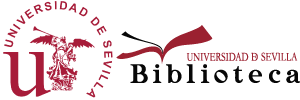Globalización del saber: Nuevas formas de escritura determinadas por los medios digitales
Globalization of Knowledge: New Forms of Writing Determined by Digital Media
Abstract
Language is part of the symbolic universe of man, through its advance the evolution of the human species has been possible; For this reason, it has become a topic of interest for philosophy, as well as for other scientific disciplines, such as: history, linguistics, sociology, education, among others, thanks to the various interdisciplinary approaches and perspectives that can be trained on its use. In today's world, codified by the information society, advances in the globalization of knowledge, the presence of information and communication technologies (ICT) and social networks, it is essential to assess the elements that define the correct use of the Spanish language, in the same way, those aspects that tend to misrepresent it. The centennial generation has been characterized by negatively modifying language and transferring it to the academic sphere, modifying the patterns that define culture and social relations, but, despite the fact that these elements make it possible to encode their own identity, they are also detrimental when it comes to development of critical thinking and in the production of academic texts.
Downloads
References
CASSIRER, E. La filosofía de las formas simbólicas. El lenguaje. FCE, México D.F., 1985.
FRANCO, A. Gramática Comunicativa. Ediciones del Vicerrectorado Académico, Universidad del Zulia, Maracaibo, Venezuela, 2007.
TESOURO CID, M.; PUIGGALÍ ALLEPUZ, J. “Evolución y utilización del Internet en la educación”. Revista de Medios y Educación. N° 24, 2004.
CABRERO ALMENARA, J.; BARROSO OSUNA, J.; LLORENTE CEJUDO, M.; YANES CABRERA, C. “Redes sociales y Tecnologías de la Información y la Comunicación en Educación: aprendizaje colaborativo, diferencias de género, edad y preferencias”. Revista de Educación a Distancia. N° 51, 2016. Disponible en: https://www.um.es/ead/red/51/cabero_et_al.pdf. ORGANIZACIÓN DE LAS NACIONES UNIDAS PARA LA EDUCACIÓN, LA CIENCIA Y LA CULTURA (UNESCO). “Hacia las sociedades del conocimiento”, 2005.
Disponible en: http://www.lacult.unesco.org/docc/2005_hacia_las_soc_conocimiento.pdf
PARDO ABRIL, N. “Globalización y lenguaje”. Plenaria de la Asociación de Lingüística y Filología de América Latina (ALFAL), Bogotá, 2017. Disponible en: https://mundoalfal.org/sites/default/files/noticias/PonenciaNeyla.pdf
HIDALGO RIVERO, H. “Globalización, lenguaje y capitalismo cognitivo”. Observatorio Laboral. Vol. 7, N° 14, 2014.
SILVA SILVA, A. “La globalización cultural y las tecnologías de información comunicación en la cibersociedad”. Razón y Palabra, N° 64, 2021. Disponible en: http://www.razonypalabra.org.mx/N/n64/varia/asilva.html
NIÑO, V. Fundamentos de Semiótica y Lingüística. Ediciones ECOE. Bogotá, Colombia, 2007.
DOMÍNGUEZ CUESTA, C. “El lenguaje de los SMS y del chat en las aulas”. Cuadernos de Pedagogía, N° 343, 2005, p. 67.
CASSANY, D. Tras las líneas: Sobre la lectura contemporánea. Editorial Anagrama, Barcelona, España, 2006.
BETTI, S. “La jerga juvenil de los SMS”. Cuadernos del Lazarillo, Revista Literaria y Cultural. Vol. 31, 2006.
BARRERA, L. “El idioma de Internet: ¿Lengua virtual o lengua virtuosa?” Revista LinguaAmericana. Año IX, N° 17, 2005.
CHELA-FLORES, G. “Nivelación dialectal, electrotextos y su incidencia en la interpretación fonetológica de algunos aspectos del español”. Revista Letras. Vol. 48, N°. 72, 2006.
ROMERO, V. Lengua Española y Comunicación. Editorial Ariel, Barcelona, España, 2002.
MARTÍNEZ, E.; GONZÁLEZ A. “La comunicación digital: nuevas formas de lectura-escritura”. Revista Quaderms Digitals, N° 63. Disponible en: www.quadernsdigitals.net
NAVAL ARIÑO, J. (Editor). “Presentación: Identidad, cultura, equidad… y redes sociales”. Telos. Cuadernos de Comunicación e Innovación. N° 91, 2012.
GANDASEGUI, V. D. “Mitos y realidades de las redes sociales”. Prisma Social. Revista de Ciencias Sociales, N° 6, 2011.
VENEGAS RAMÍREZ, M. “La escritura y las redes sociales”. Trabajo de Grado presentado para optar al título de Magíster en Educación. Universidad del Tolima, 2014. Disponible en: http://repository.ut.edu.co/bitstream/001/1166/1/RIUT-BHA-spa-2014-La%20escritura%20y%20las%20redes%20sociales.pdf































